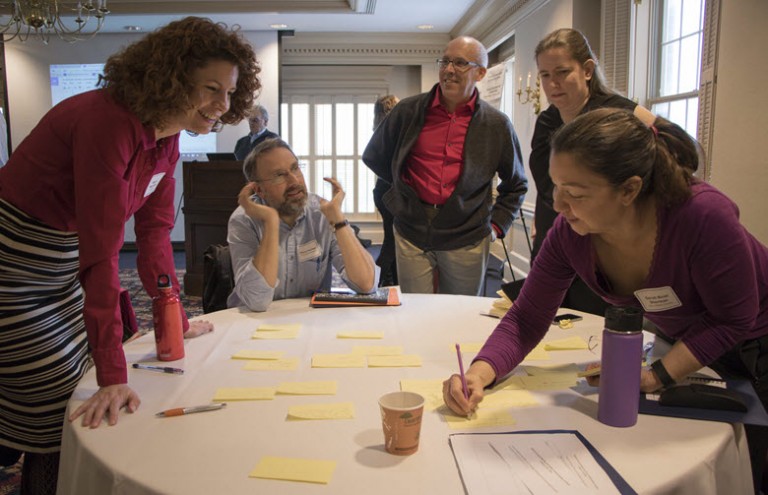Two recent education conferences I attended raised similar questions about developing and sustaining high-quality teaching. Things like:
- How do we measure the success of course transformation?
- How can we get buy-in from colleagues?
- How do we gain the support of department chairs and administrators?
- How do we share ideas among campuses?
- How do we sustain and grow communities around the idea of improving teaching?
That last question was central to both conferences, one at KU and one at the University of California, Davis.

The KU conference in late January helped launch a new CTE-led initiative called Trestle, or Transforming Education, Stimulating Teaching and Learning Excellence. CTE’s director, Andrea Greenhoot, leads the project, which is financed by a $2.5 million grant from the National Science Foundation. The goal is to spread the use of evidence-based teaching methods in science, engineering, technology, and math courses across several participating universities.
The conference at UC Davis was called TEA (There was a link, but it does not exist anymore), or Tools for Evidence-based Action. Its focus was on documenting teaching, learning, and curricula, specifically through digital tools that provide data visualizations of student performance and classroom activities.
At both conferences, faculty members shared successes and failures in teaching, and talked candidly about the challenges we face in bringing more people into the fold. By building a community of engaged teachers, we hope to share our experiences in and out of the classroom, improve our approaches to teaching, emphasize the importance of learning, and shape our classes with evidence-based, learner-centered approaches.
Those are buzzwords, yes, but in essence they mean we need to reflect on our teaching and approach it in measured, meaningful ways. By building community, we can all find ways of doing that.
Submit a proposal for our first Teaching Slam
As a way to expand our community of engaged teachers, we are putting on a Teaching Slam.
A Teaching Slam is a fast-paced session in which speakers from many disciplines around KU share their best teaching tips, assessment ideas, or class activities. Instructors in all disciplines are welcome to submit proposals, and we’ll choose the best for presentation on Friday, March 25 from 2 to 3:30 p.m.
We are looking for proposals for two types of presentations:
- Six + Six. You will have six minutes and six slides to share a useful class activity, an assessment idea, or a teaching tip.
- Class Demo. You will have 10 to 15 minutes to lead your colleagues (who will act as your class) through a hands-on classroom activity. These sessions must be interactive.
Both types of presenters must provide a handout to help others use the activity immediately.
Deadline for proposals is noon Friday, March 4. We’ll choose the best and let everyone know the results by early the following week.
Interested? Submit a proposal and join our community.
Tagged course redesign, course transformation, evidence-based teaching, Trestle